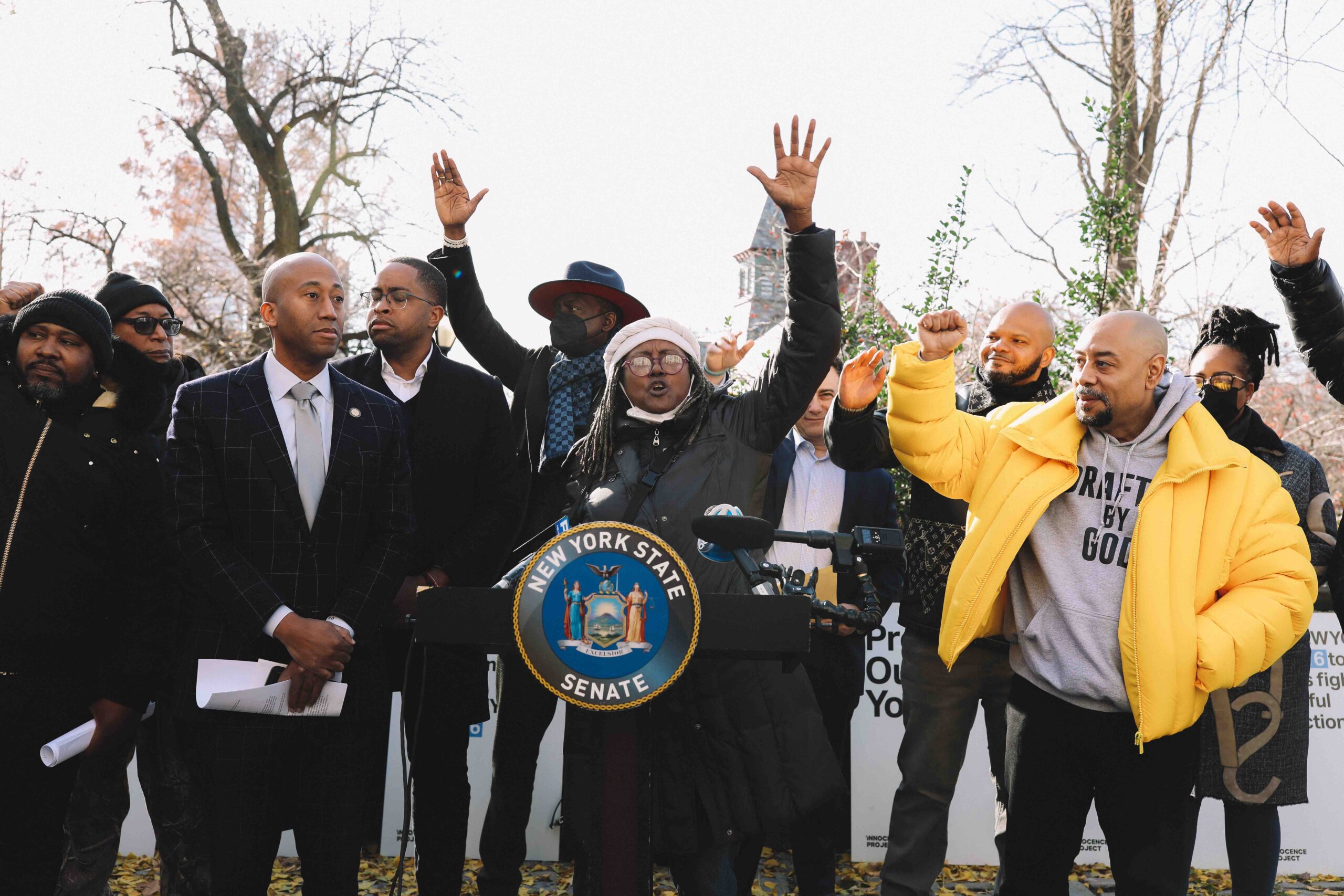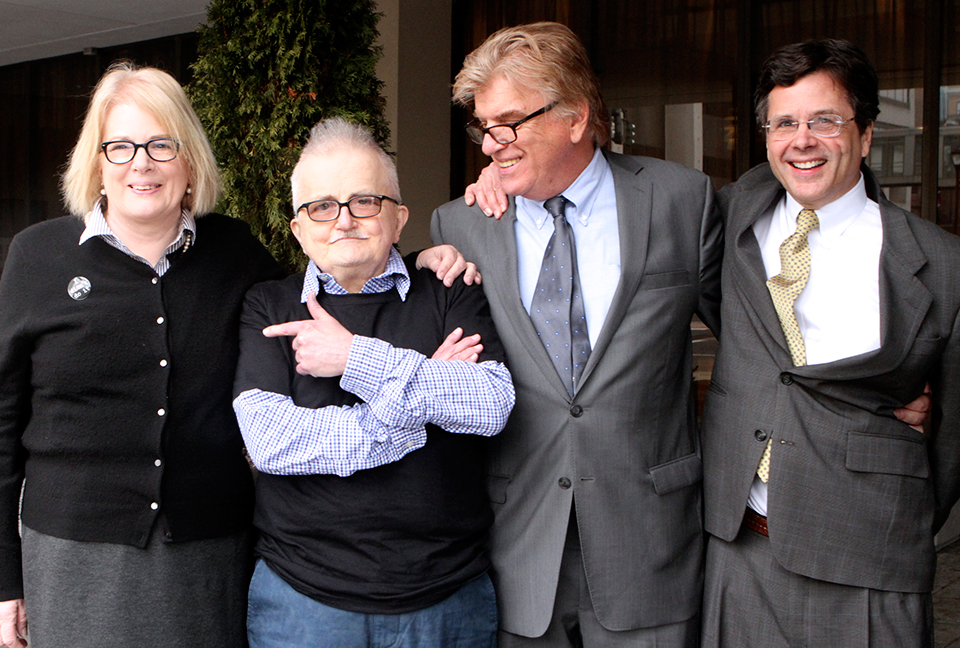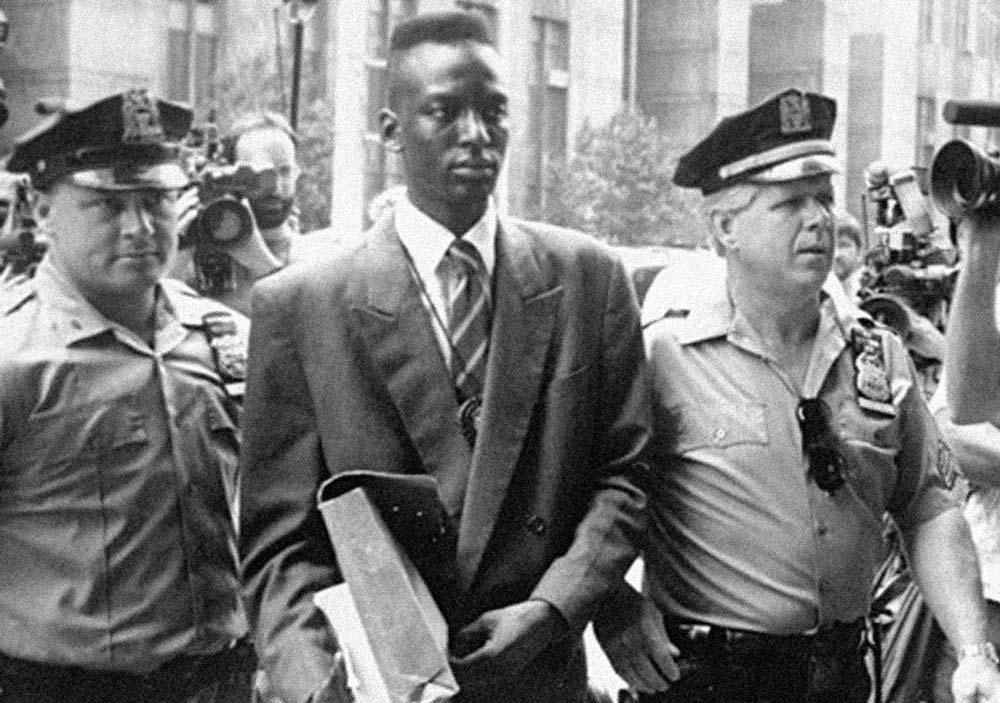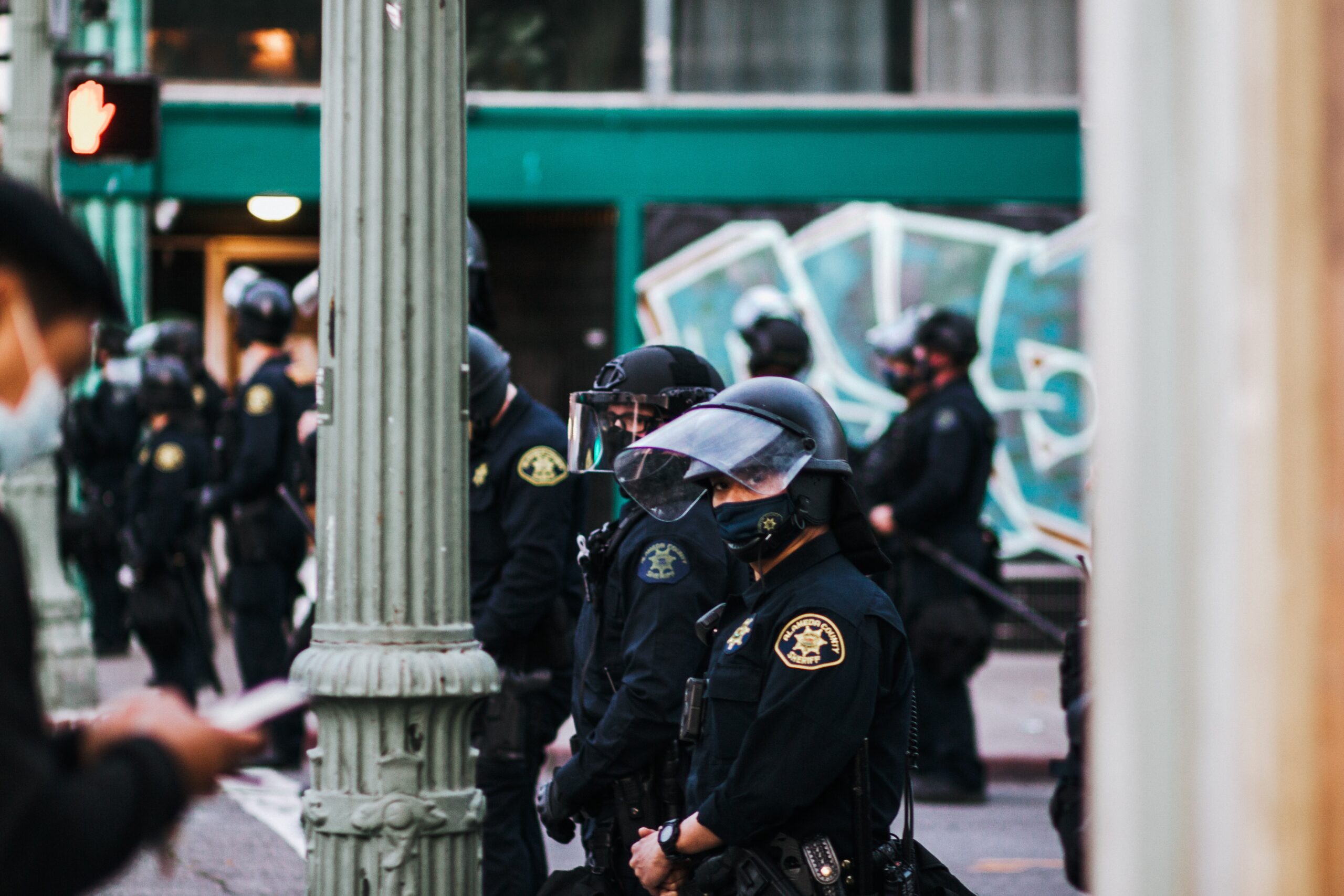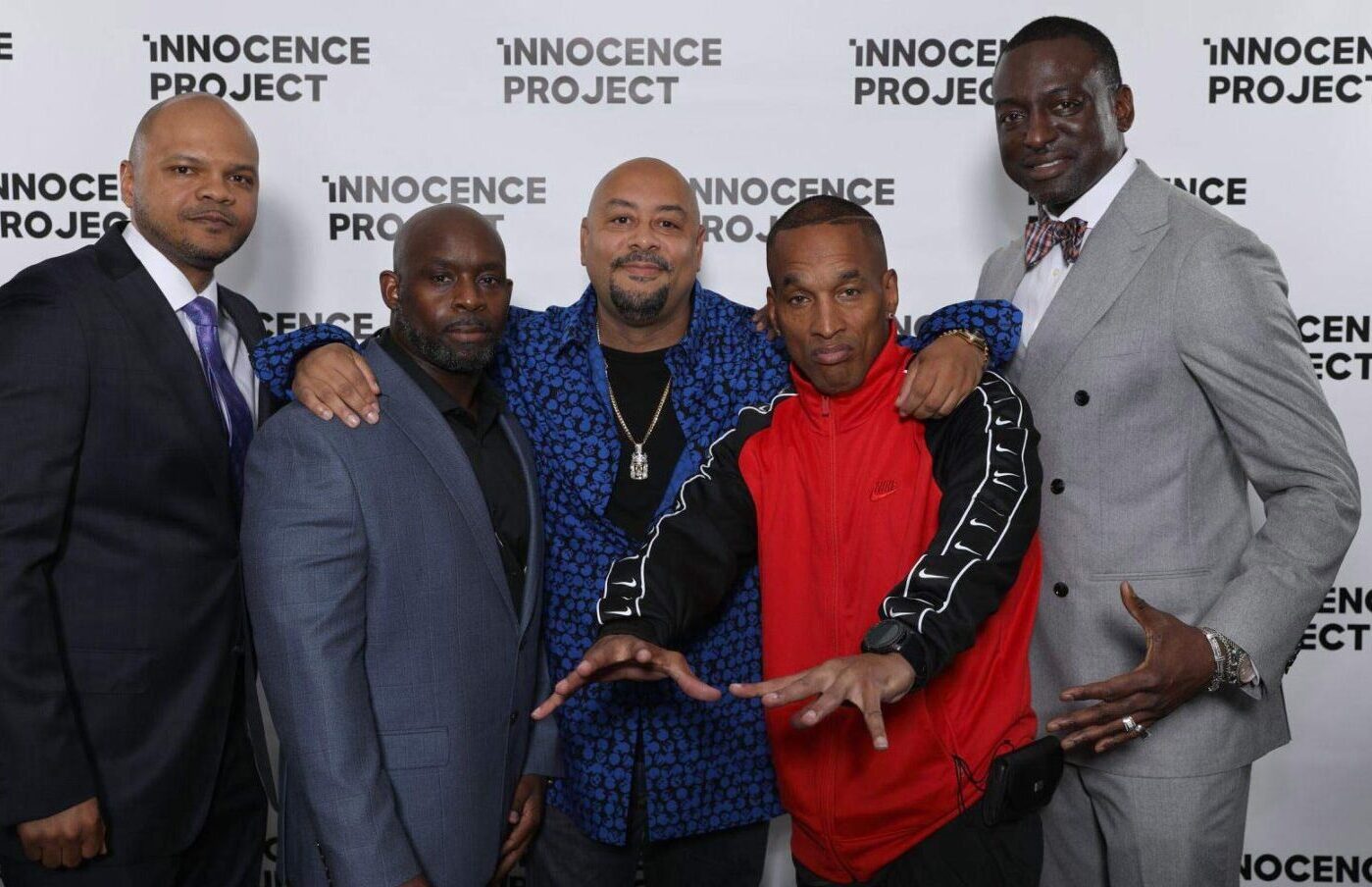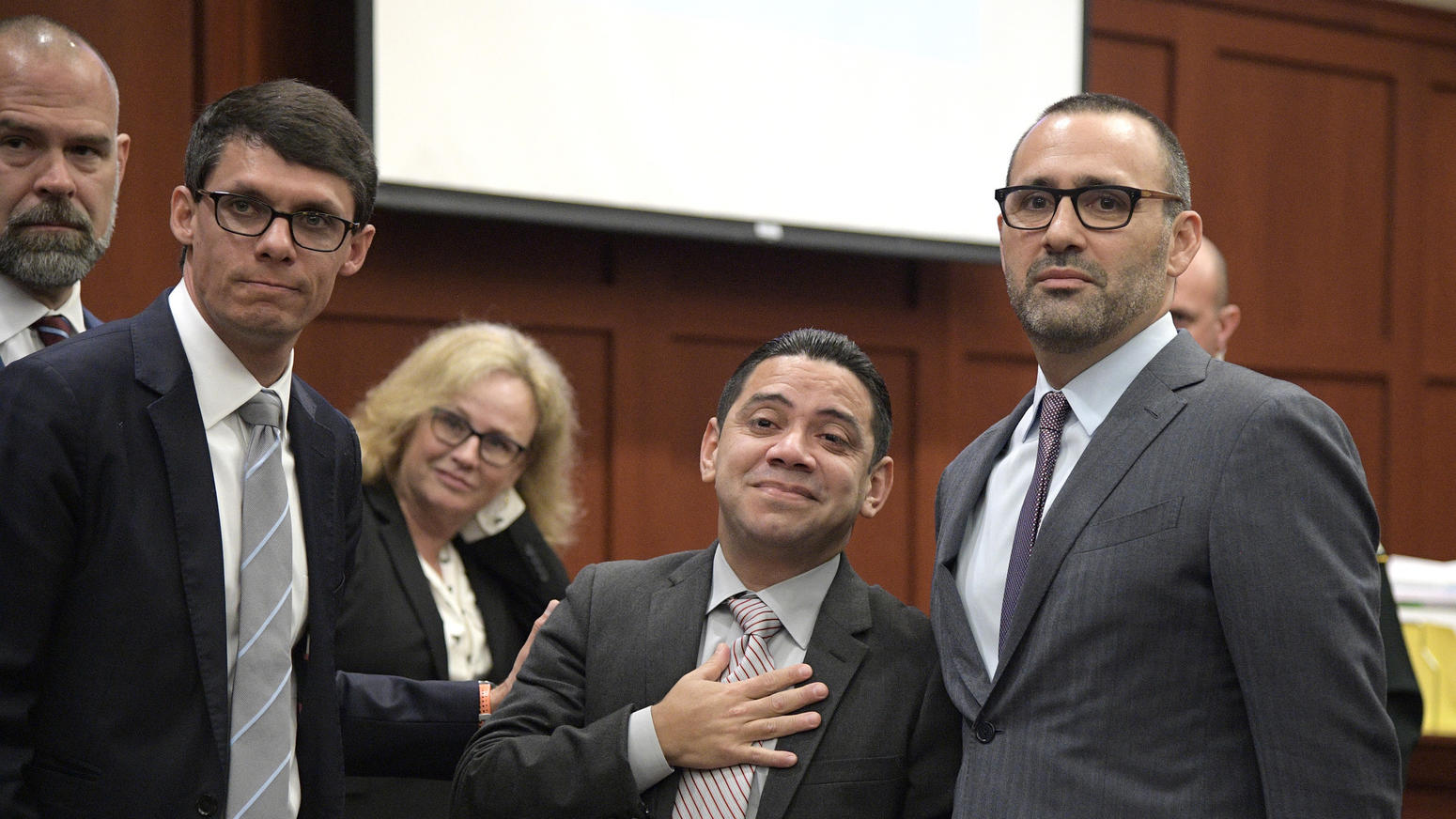
Transforming Systems
Transforming Systems
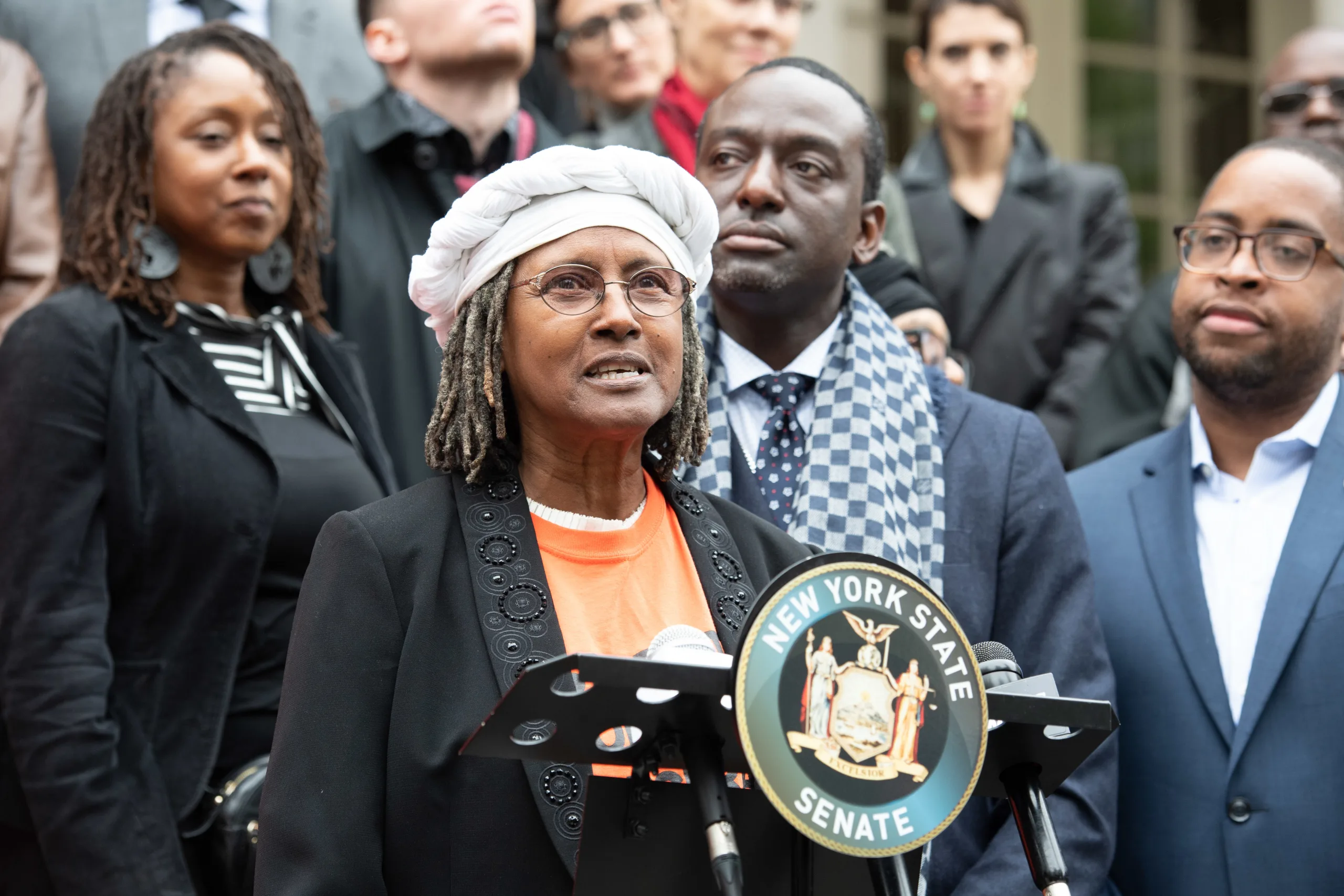
Sharonne Salaam speaks outside City Hall in New York City on Oct. 29, 2019. (Image: Larry Busacca/AP Images for the Innocence Project)
By tackling the flaws within our criminal legal system, we are working to eliminate the failings that lead to wrongful convictions and disproportionately harm communities of color, especially Black people.
Working alongside policymakers, supporters, and partner organizations, we have spearheaded federal- and state-based legislative changes that help to reveal wrongful convictions. These initiatives include improving access to post-conviction courts, strengthening police and prosecutorial accountability to prevent wrongful conviction, compensating wrongly convicted people, and a range of other reforms — including taking aim at practices that enable misidentifications, unreliable informant testimony, coerced guilty pleas, and false confessions. Our efforts have led to the passage of more than 250 transformative state laws and federal reforms.
We also work to strengthen the standards that govern the use of science in criminal legal systems. We urge system actors — including judges, forensic experts, and prosecutors — to examine evidence for scientific accuracy and reliability, as well as to consider the broader civil rights implications of harmful surveillance and investigative technologies.

Sharonne Salaam speaks outside City Hall in New York City on Oct. 29, 2019. (Image: Larry Busacca/AP Images for the Innocence Project)

Take Action
How We Transform Systems
Exonerees are often freed after years of wrongful incarceration with few resources to help them rebuild their lives. States have a responsibility to render restitution to wrongfully convicted people as best they can — even though no sum of money can truly make up for the time that was taken from them. This includes providing monetary compensation, immediate subsistence funds, and access to critical services.
Working together with exonerees, other Innocence Network organizations, and state officials, we push for laws that distribute monetary compensation based on an established minimum amount ($70,000) for each year of wrongful incarceration. To date, nearly 40 states have compensation statutes, although not all guarantee that a wrongly convicted person will be fairly compensated or compensated at all. In these states, we advocate for legislative fixes that would remove barriers to adequate compensation.
Police are rarely held accountable for misconduct, including wrongdoing that leads to wrongful convictions (such as fabricating evidence, failing to disclose evidence, and lying on the stand). Failure to ensure authentic accountability leads to tragic outcomes, including police violence and wrongful conviction.
To strengthen accountability and discourage repeated patterns of misconduct, we work to ensure transparency through public access to police disciplinary files and the establishment of police misconduct databases. We are also working to ensure robust systems of accountability, including decertification systems with authentic community oversight. This will prevent future injustice against innocent people, while also holding officers with a record of wrongdoing responsible for their actions. Additionally, we are pushing for the elimination of the Law Enforcement Officers’ Bill of Rights — which offers special protections to police that can diminish accountability — and a ban on qualified immunity, which prevents liability for police misconduct.
Prosecutors wield significant power in the criminal legal system, from what evidence to present to whether to disclose favorable evidence to the defense. Whether in error or through intentional misconduct, these actions undermine accuracy in criminal trials and contribute to wrongful convictions at unacceptably high rates. Under current U.S. law, prosecutors are almost entirely immune from civil lawsuits even when they intentionally violate laws. Existing grievance processes in many states are ineffective and inefficient, often permitting “serial offenders” to continue their misconduct. Additionally, many courts and defense counsel are reluctant to refer even serious cases of apparent misconduct to existing grievance entities either because the allegations can take a long time to resolve or due to a lack of confidence in the current system’s integrity.
To strengthen prosecutorial oversight and accountability, we are advocating for discovery and other pretrial reforms that would require prosecutors to turn favorable evidence over to people being charged. We are also working to regulate jailhouse informant testimony, which prosecutors frequently leverage to build their cases against innocent people, and to eliminate the trial penalty (the considerable difference between the sentence offered during a plea deal before trial and the sentence a person may receive after trial). Additionally, we are working to establish independent commissions on prosecutorial conduct so that allegations of misconduct will be investigated in a timely and rigorous way.
Wrongfully convicted people frequently face roadblocks in proving their innocence due to restrictions by law, resistance from prosecutors, lost evidence, and more.
Informed by our cases, we are pushing forth laws that would mandate the preservation of biological evidence, provide statutory access to post-conviction DNA testing, permit wrongfully convicted people to present new evidence of changes in the science that was used to convict them, and remove other obstacles to post-conviction relief. To that end, we are championing legislation that would remove time limits on introducing newly discovered evidence and other fixes to existing laws that limit post-conviction access to the courts.
See our stories and work related to revealing wrongful conviction.
Approximately half of all our DNA exonerations and a quarter of all wrongful conviction cases since 1989 have involved misapplied forensic science. Yet, many system actors continue to accept certain unreliable forensic methods or testimony to be true or conclusive.
As an organization whose work is rooted in science and anti-racism, we strengthen forensic science through the courts, state legislatures, and Congress. In addition to educating system actors on the limitations of various forensic methods, we are working to establish oversight mechanisms and set standards for the use of these methods. We are also addressing racial bias and lapses in forensic pathology and working to regulate harmful investigative and surveillance technologies, which disproportionately impact communities of color.
See our stories and work related to strengthening forensic science.
Suspect development can be an entry point to a wrongful conviction and sometimes involves the use of unregulated and unreliable technologies (such as policing algorithms that seek to predict future criminality or facial recognition technologies). These technologies sort people and places for additional police scrutiny and are often implemented before being sufficiently tested for accuracy and reliability. Even if the technologies were to become highly accurate, they are disproportionately deployed on communities of color, increasing the risks of wrongful conviction to members of these communities. Additionally, police practices during the course of investigations often rely upon unscientific methods (including the use of suggestive photo arrays or coercive interrogation tactics) and can lead to wrongful conviction.
Recognizing that police officers are typically an innocent person’s first point of contact with the criminal legal system, we are working to reform suspect development and investigative practices. We are also working to ban or regulate suspect development tools and police practices that have been shown to contribute to wrongful arrests. For instance, we advocate for a series of eyewitness identification techniques that reduce implicit and explicit biases in the process, including the blind administration of lineups. To prevent false confessions that lead to wrongful conviction, we advocate for custodial interrogations to be recorded. We are also working to address the use of interrogation methods demonstrated to coerce false confessions, including deception.
See our stories and work related to suspect development and investigation.

Access Forensic Science Resources
By deepening awareness around forensic science disciplines, we work to prevent their misapplication, which is a leading cause of wrongful conviction.

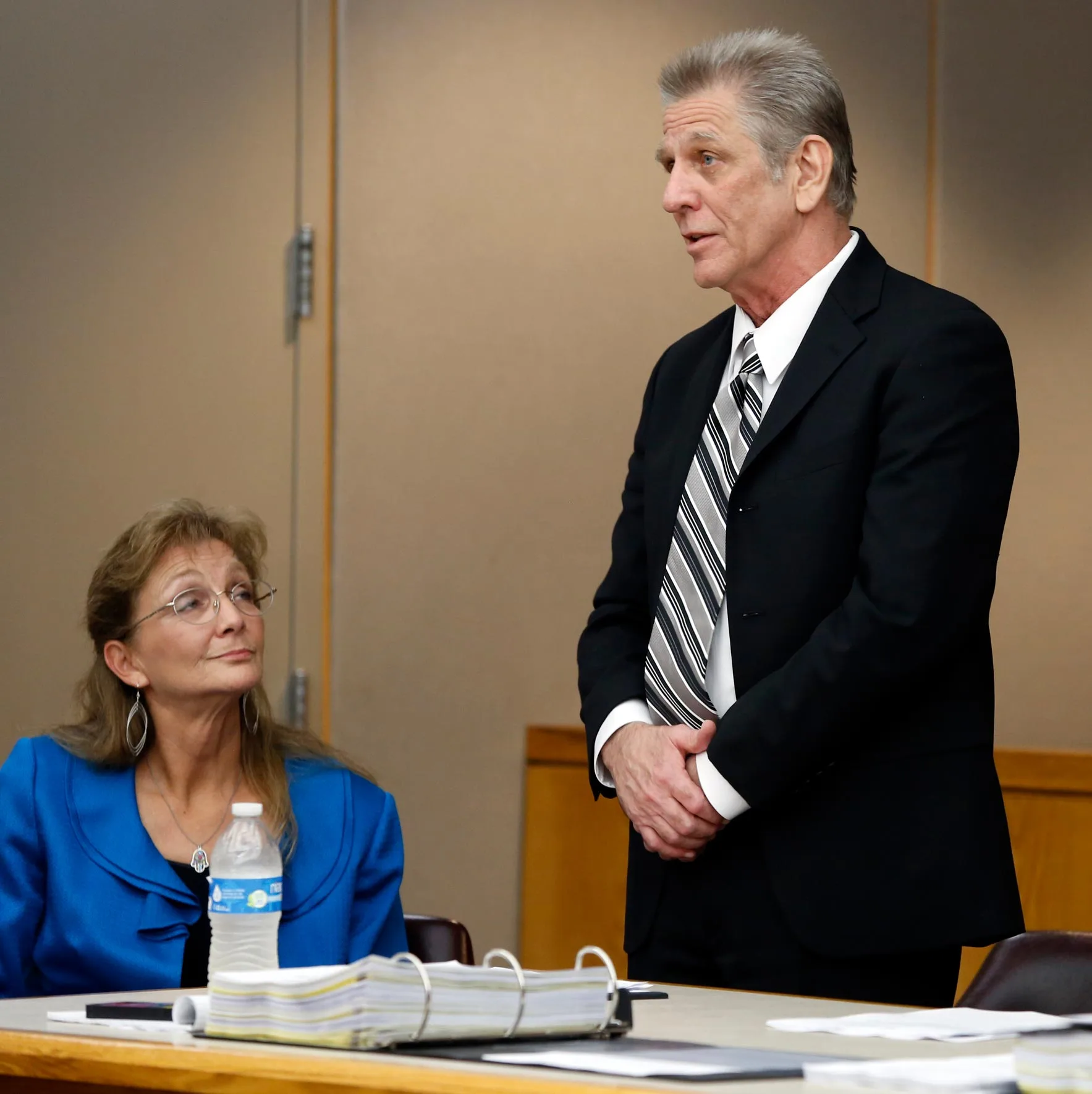
View the Brief Bank
We work through the courts to address the leading causes of wrongful conviction and establish legal precedent in areas where unvalidated forensic science can be unjustly used to convict an innocent person by filing briefs.

